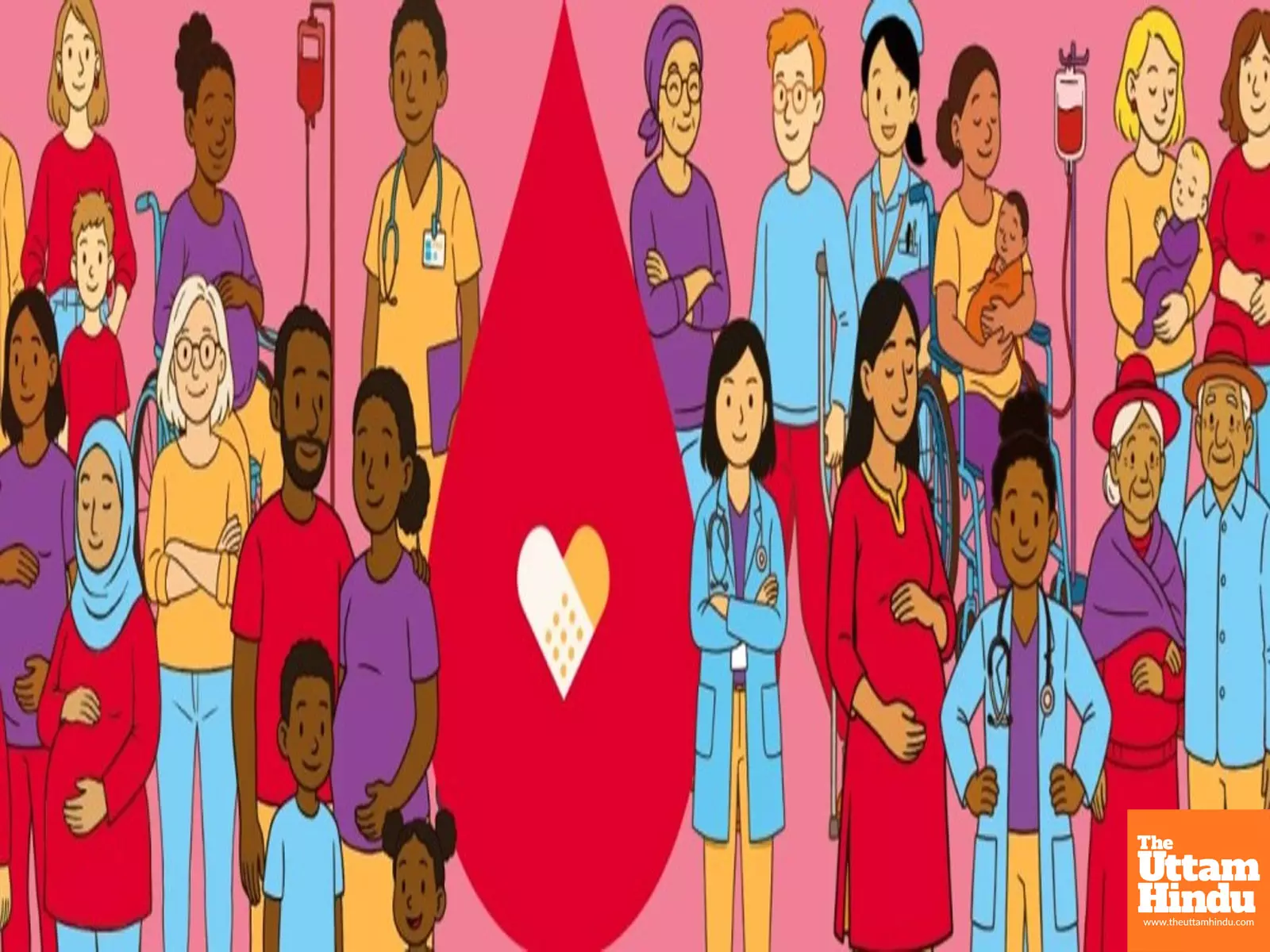Blood transfusion cornerstone of effective healthcare, emergency response: WHO

New Delhi(The Uttam Hindu): Blood transfusion is the cornerstone of effective healthcare and emergency responses, said Saima Wazed, Regional Director for WHO South-East Asia on Friday, ahead of the World Blood Donor Day.
World Blood Donor Day is marked annually on June 14. This year the theme is “Give blood, give hope: together we save lives.”
The day honours the silent heroes among us -- voluntary, unpaid blood donors -- whose simple yet powerful act of donating their blood saves countless lives each day.
Wazed noted that to build resilient national health systems it is essential to have the critical and continuous need for safe blood and blood products.
Yet many people, especially in low- and middle-income countries, do not have access to safe and timely transfusion services.
“Blood transfusion is a cornerstone of effective healthcare and emergency response. From mothers experiencing complications during childbirth, to children suffering from severe anaemia to patients undergoing surgery or living with chronic blood disorders like thalassemia, haemophilia, and sickle-cell disease -- blood saves lives,” said the Regional Director.
“In crisis situations, such as natural disasters or conflict, timely access to safe blood is often the difference between life and death,” she added.
Wazed said that strong national systems and a stable base of voluntary, unpaid donors who are willing to give blood regularly are key to achieving universal access to safe blood.
Meanwhile, the Regional Director noted that all countries in the WHO South-East Asia have developed national blood policies aligned with the global health body’s recommendations on blood safety.
These policies advocate for nationally coordinated blood transfusion services based on 100 per cent voluntary non-remunerated blood donations (VNRD), and adherence to national or internationally recognised blood standards.
“Currently, nearly 50 per cent of our Member States have achieved close to 100 per cent VNRD coverage, contributing significantly to the blood supply required for national health systems. Across our region, approximately 82 per cent of all donated blood is sourced from voluntary, unpaid donors, reflecting strong community engagement and donor motivation,” Wazed said.
Further, Wazed stated that all blood collected in the SE region is screened for transfusion-transmitted infections (TTIs) and tested for the necessary serological parameters.
She urged all governments, health authorities to renew support for national blood transfusion programmes.
“On World Blood Donor Day 2025, let us remember that each blood donation is not just a medical act -- it is an act of compassion, commitment, and hope. It is a lifeline to someone, somewhere, who may never meet their donor, but whose life was touched forever,” Wazed said.
